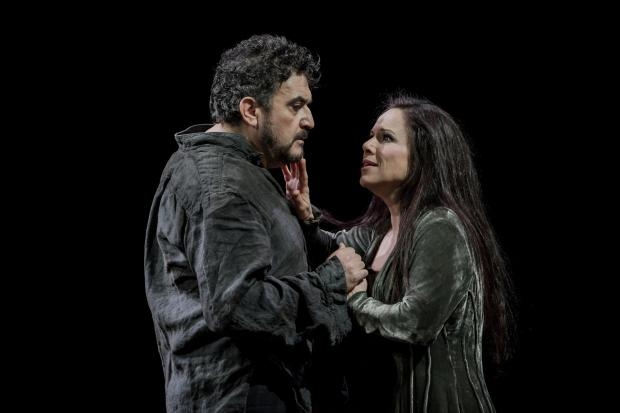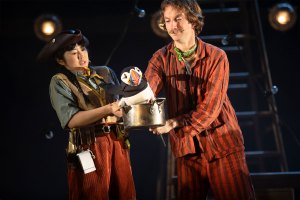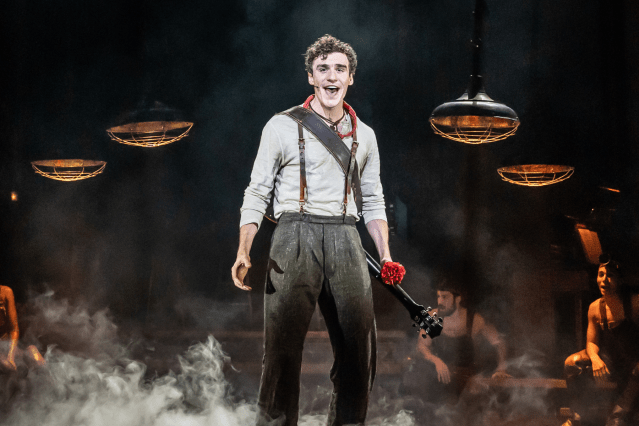Andrea Chénier (Grand Theatre, Leeds – tour)
Opera North scores a triumph with Annabel Arden’s lean, intelligent staging

© Robert Workman
The opening act of Andrea Chénier is akin to a prelude: it takes place in 1789 just as high French society learns that its world is about to change forever. The character exposition at the Contessa di Coigny’s ball prickles with newly-exposed class tensions, and in three remaining acts – set five years later – these explode into a hysteria of retribution.
A year on from the Royal Opera’s somewhat literal David McVicar-directed production, Opera North has engaged Annabel Arden to breathe life into Giordano’s operatic death rattle. She succeeds magnificently. Joanna Parker‘s sets are geometric and devoid of any clutter save a tell-tale stash of looted statuary in the cupboard under the stairs; this clean staging allows theatricality to arise from the dramatic interplay of the opera’s unusually large cast, and here Arden’s detailed direction is a revelation.
The troupe is as vivid as it is talented, with shrewdly delineated personalities in even the briefest of roles. Daniel Norman and Anna Dennis are just two artists who stand out amid a throng of fine contributions. And it was an inspired idea to have the glorious Fiona Kimm play two contrasting casualties of the same of conflict. First an imperious Contessa and later a heartbreaking Madelon, she becomes an emblem of victimhood.
'Triumphant figurehead'
The triangle at the opera’s heart is similarly robust. Robert Hayward‘s voice may be gruff bordering on rough these days, but it suits the dark, divided character of Gérard very well. And Dutch soprano Annemarie Kremer invests the opera’s heroine, Maddalena, with eloquent vulnerability, warmly sung.
Giordano’s romanticised refashioning of the title character from its historic truth is the opera’s one undeniable weakness. The real André Chénier, a philosophical poet, was executed for the crime of writing defiant verse tracts, but there’s none of that in the score. Instead he gets to sing a succession of big numbers and it’s Maddalena, not he, who makes the greater sacrifice. Yet the role requires a grand tenor with a powerful stage presence and a handsome, tireless voice – and in Rafael Rojas this production has one. The Mexican has unmistakable hints of fellow-countryman Plácido Domingo in his pomp, yet he’s his own man and he gives the show its triumphant figurehead.
The production’s other star is conductor Oliver von Dohnányi, whose conducting of Opera North’s splendid chorus and orchestra is excitingly paced and strikingly dramatic. He, like Arden, keeps the storytelling tight and clear.
This is one of those operas that get wheeled out as vanity projects for big-name singers, but here’s a production that presents the work on its own terms as a visceral, emotionally searing ensemble opera. It’s the little things that afford the greatest pleasure, for instance the pair of lead-light windows that play so many scenic roles under Peter Mumford’s clever lighting. Felicities like that abound. If you still need persuading that Opera North is a national treasure, see Andrea Chénier and case closed.
Andrea Chénier runs in repertory in Leeds until 24 February, then tours to Newcastle, Nottingham and Salford.












